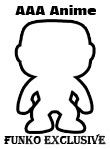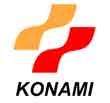Anime News
|
The Americanization of Manga: The Next Big Thing? Date: 4/22/2005 |
|
In an attempt to cash in on a popular craze?and change a business model that relies predominantly on foreign licensing deals?American publishers are starting to roll out Americanized versions of manga, the Japanese serials that have come to dominate the comic-book market. The highest-profile projects include manga versions of Nancy Drew and The Hardy Boys, which hit shelves this week, and an upcoming manga-style series from Scholastic called Queen Bee, about high-school social hierarchy, which bows in September 2005. These homegrown manga titles will be released by recently formed imprints: Papercutz, a new division within the established independent comic-book publisher NBM, is responsible for The Hardy Boys and Nancy Drew updates, while Scholastic?s new Graphix division will roll out Queen Bee. (Graphix is also behind a graphic-novel version of The Babysitter?s Club, set to appear in April 2006, though a representative from the company said they are not classifying it as a ?manga-style? series.) All this manga activity begs the same question: Can American publishers take over a market created by the Japanese? The surge in YA graphic-novel imprints points to the fact that many publishers feel the genre has staying power. Chris Johnston, a senior editor at NewType USA, the English-language version of the popular Japanese anime and manga magazine NewType, certainly thinks it does. ?We live in a very visual culture and the stories in manga are quick hits,? he says. ?You can read through them in less than an hour, which makes them the perfect thing for a lot of kids today; they?re not quite books, but they?re close enough.? Hoping teens and tweens will gravitate toward his Americanized versions of these so-called ?not quite books,? Terry Nantier, founder and CEO of NBM (which has been in the comic book business since 1976), says his Papercutz imprint marks the ?next generation? in comic-book publishing. ?We?re not trying to imitate Japanese-style stories,? he says. ?We?re using the manga style because that?s what kids know. We?re trying to capitalize on the fact that kids are coming back to comic books in significant numbers.? Just how significant? A variety of manga titles has dominated the top spot on The Book Standard?s Comics and Graphic Novels chart for the first 11 weeks of 2005. And since the start of 2005, the majority of titles in the Top 15 have fallen into the manga category. The dominating hold manga has had in the genre has only been disrupted recently by movie tie-ins?the novelization of the upcoming Star Wars prequel, Revenge of the Sith, and four separate volumes from Frank Miller?s Sin City have changed the manga-heavy makeup of the chart over the past three weeks. Nantier credits video games and phenomena like Pok?mon for the popularity of manga in the comic-book market. Adding that teens and tweens are now accustomed to the particular cartoon style that typifies manga, Nantier says that this is what Papercutz is trying to capitalize on. That, and the fact that the main characters in manga eschew the classic superhero mold: Aside from a few wandering samurai, most are teenagers without any superpowers to speak of. Outfitting the teenage detectives of his two new series with 21st-century gadgetry?Nancy has a hybrid car and all three characters rely on laptops and cell phones?but maintaining their personas as everyday kids, Nantier believes these new comic books will speak to young readers uninterested in traditional superheroes. Although the stars of the updated Nancy Drew and Hardy Boys series will have this ?everyman? quality, Johnston says the new titles still face an uphill battle. One problem for Nantier, he suggests, is that many Americans read manga for the ?innate Japaneseness? of it. Adding that there is a cultish aspect to manga fans?Johnston says many enjoy the Japanese-style comic books for their esoteric nature and ?cool factor??the appeal of the genre is partially tied to its outlandish storylines. For example, in Fruits Basket, one of the bestselling manga series, a teenage orphan takes a job as a maid, only to find out that her male employers turn into Zodiac animals when hugged by members of the opposite sex. Johnston is also quick to point out that the manga versions of Nancy Drew and The Hardy Boys aren?t the first of their kind to appear on the market. TokyoPop, one of the largest manga publishers in the U.S., started a biannual contest in 2002 in hopes of finding American manga talent. The first stand-alone series to be launched out of the company?s Rising Stars of Manga competition is Peach Fuzz, penned by a woman from Florida. The first of three planned volumes debuted on Jan. 30. (It has not yet appeared on The Book Standard bestseller charts.) TokyoPop spokesperson Susan Hale says the publisher is committed to fostering homegrown manga authors and illustrators. Rising Stars of Manga has so far yielded 14 book deals. Despite potential stumbling blocks, Johnston believes there is a viable market for American-made manga. ?It?ll be an interesting experiment, for sure,? he says. ?Manga?s really popular with a crowd that would naturally be into these characters, so it makes sense.? |
| Source: The Book Standard |





















